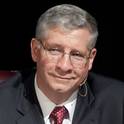
Article
When the Clausewitzian Trinity is Not Paradoxical
Infinity Journal
(2019)
Abstract
As Clausewitz scholars well know, Prussia’s renowned theorist never used the word paradoxical to describe his trinitarian concept of war’s nature. The adjective paradoxical was added by Michael Howard and Peter Paret as a translation of the German word “wünderliche” (wondrous) in their 1976 English edition of On War; they subsequently replaced paradoxical with the more suitable word “remarkable” in the revised edition that appeared in 1989. However, many thousands of copies of the unrevised editions of On War remain in circulation. Consequently, the adjective paradoxical stubbornly persists as a descriptor of Clausewitz’s trinity. An uncomfortable number of students, for instance, use it in seminar discussions (until corrected). Moreover, even though Clausewitz scholars consciously avoid the word, they routinely describe the trinity in paradoxical terms, as if its elements—reason, passion, and chance—always work at cross purposes to one another. In effect, the meaning of the word paradoxical often informs how we see the trinity, even if we deliberately avoid using the adjective itself.
Keywords
- Clausewitz,
- strategy
Disciplines
Publication Date
Summer 2019
Citation Information
Antulio J. Echevarria II. "When the Clausewitzian Trinity is Not Paradoxical" Infinity Journal (2019) Available at: http://works.bepress.com/antulio-echevarria/39/
